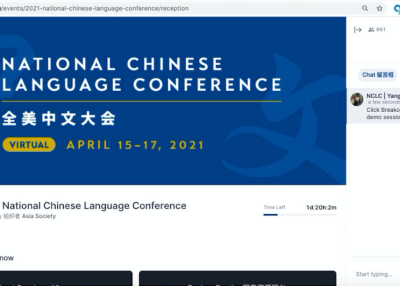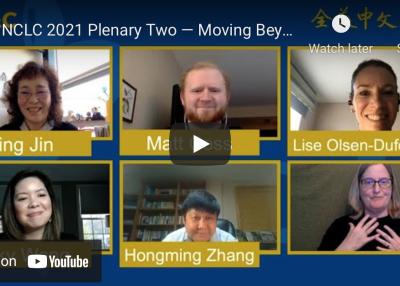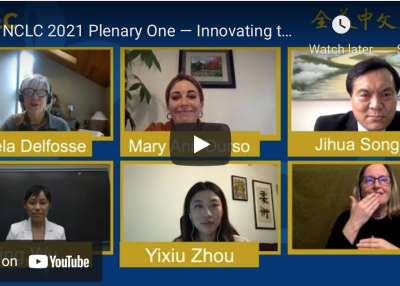Equity in Chinese Language Education
Plenary Three of the 2021 Virtual National Chinese Language Conference
In the third plenary of the 2021 Virtual National Chinese Language Conference, Tony Jackson, Director for the Center for Global Education at Asia Society, marshaled a powerful and wide-ranging discussion around equity in Chinese language education. Starting from the premise that learning a language other than your home language is an essential step toward global competence, he asked: Why is it important for Chinese language educators to address inequality in their classrooms?
Sue Park, Head of School at the Yu Ming Charter School, understands that in leadership roles there exists a tremendous opportunity to create the schools our students deserve. There is power in global languages and citizenship, and educators must develop an awareness of this power among their students.
After serving 20 years as a marine corps infantry officer and traveling the world, Eddie Conger, Superintendent, International Leadership of Texas, recognizes the critical importance of ensuring all children receive the highest quality education that’s humanly possible. He says that in his classrooms, they are working to eradicate fear of the unknown.
Xiaorong Zhou is a SCSU Research Scholar and Turquoise International Education Director. Acknowledging that there are significant limitations for students focusing on sign language, both culturally and linguistically, deaf students from any country need more access to foreign languages in order to increase their global competencies and ability to communicate.
Bonnie Wang, Chinese Teacher at Durham Academy and co-founder of Courageous Dialogues with Chinese Educators, reminds us that equity is not a one-time, one step action. Rather, equity is a holistic, ongoing process that involves mindsets and skills sets, and it should be included in classroom expectations and daily procedures. It’s not what teachers feel is good or fun or cool to teach about, but what is relevant to our students.
For all students of color, LGBTQ students, and students coming from varying socio-economics and learning disabilities, we need to check our assumptions about what their needs may be. In addition to knowing our students, educators must model equity. We need to address social injustice issues, regardless of the classroom make-up. One path toward accomplishing this is for teachers to acquire a deep understanding of the historical realities behind how our systems in the U.S. have been created.
Regardless of who our students are, issues of inequity and bias are in the air, and we should use these as teachable moments. We can strive to make our classrooms a relevant place in every way. If we create an equitable classroom — whatever the subject we're teaching — students will feel comfortable coming to us and we can better meet their needs.
Click above to watch the NCLC 2021 Plenary Three panel discussion in full



